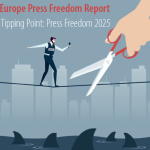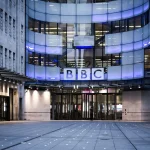“Freedom Day” came to the UK on July 19 2021.
It marked the end of more than six months of lockdown with the removal of most restrictions, laws and rules on covid safety so more people could meet more freely, go out to restaurants, bars and events, not have to wear face masks, and not forced to stay socially distanced.
First trumpeted by Prime Minister Boris Johnson when he announced it, public opinion quickly forced him to change his emphasis to advice on staying cautious and promoting vaccinations for younger people – as many people seemed to prefer staying safe to shopping or partying or celebrating.
That seemed largely to have remained the case following so-called freedom day.
There were mixed signals from the early impact of loosened restrictions.
Warnings of continued rising infections and the covid risks beforehand, including a letter in The Lancet medical journal signed by more than 1200 scientists, appeared to have abated by the early weeks of August.
But hopes of a boom in spending and the wider economy remained glimmers rather than data.
Ironically on “freedom day” itself chief cheerleader Johnson found himself in covid isolation despite trying to avoid it by putting himself and Chancellor Rishi Sunak in a pilot program that allowed normal working with daily testing after their colleague health minister Sajid Javid tested positive for covid.
But that only lasted three hours as a public backlash forced them to reverse their plan.
Opposition Labour Leader Keir Starmer compared them with bank robbers who “got caught and have now offered to give the money back.”
It was another example Labour said of one law for the privileged and another for the rest.
The trust issue has dogged the Johnson government for much of the pandemic.
American business media giants Forbes and Bloomberg labelled freedom day as a “farce” and confusing.
Public confidence in how the UK government has handled the pandemic slipped to 34% just after July 19 and fluctuated between 30% and 45% for more than a year since June 2020 aside from a rise and then fall from February to June 2021 during the third lockdown.
Although the UK ranks low on a global scale of confidence many other countries have seen strong swings in support from their publics.
It probably didn’t help when health minister Matt Hancock had to resign at the end of June after the Sun newspaper published CCTV video of him breaking his own social distancing rules kissing a colleague – with whom he was having an affair and whom he hired.
And former key Johnson adviser Dominic Cummings kept coming back to haunt the government with multiple damaging revelations about handling the pandemic including Johnson describing Hancock as “hopeless” and Johnson’s comment about preferring to see “bodies pile high in their thousands” as he opposed a third lockdown.
Of course it was Cummings who first seriously damaged trust in the government when he was caught breaking its lockdown rules in May 2020 – and yet was protected by the prime minister for nearly six months before being forced out in November in a power struggle with Johnson’s partner, Carrie Symonds.
Freedom day arrives
Nightclubs and doubts
Freedom day polling
Public behaviour
Medical concerns
The impact – covid cases fall
The impact – night and day
The impact – good news and bad news
VIP u-turn
Forbes – freedom day farce
Bloomberg – politics and confusion
Public confidence
Matt Hancock resigns
Dominic Cummings







